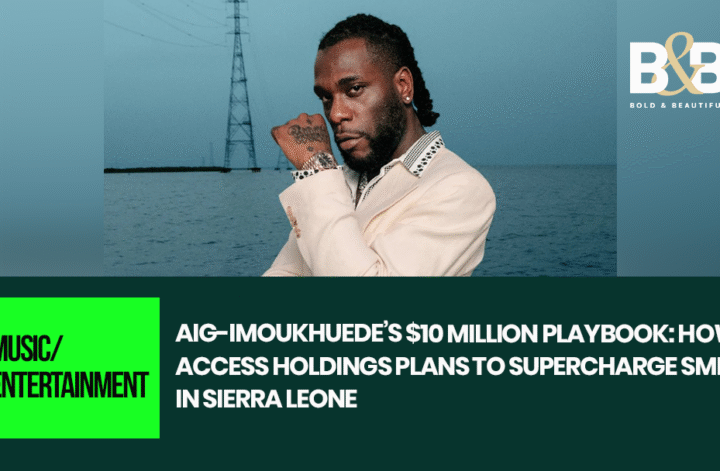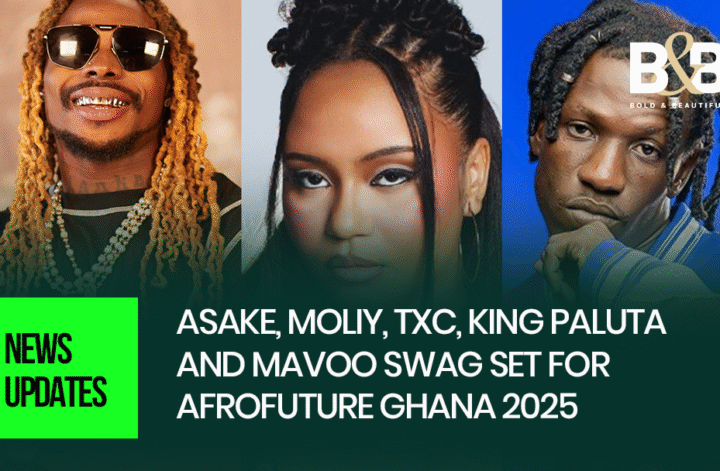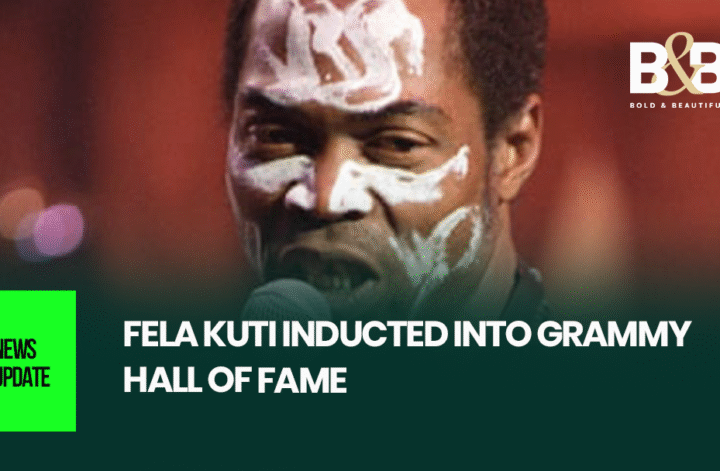Spotify has named Burna Boy the number one Afrobeats artist of 2025, placing him ahead of a field that includes Rema, Wizkid, Asake and Ayra Starr. The announcement confirms what audiences have felt for months: Burna Boy’s music continues to command vast, cross-border attention.
This ranking is more than a trophy. It is a quantitative signal of an artist who has converted cultural momentum into measurable reach. Spotify counts monthly listeners and streams in the millions, and Burna Boy’s platform metrics place him among the most listened-to African musicians on the service. That scale matters to promoters, brands and festival bookers who buy tickets and sponsorships with data.
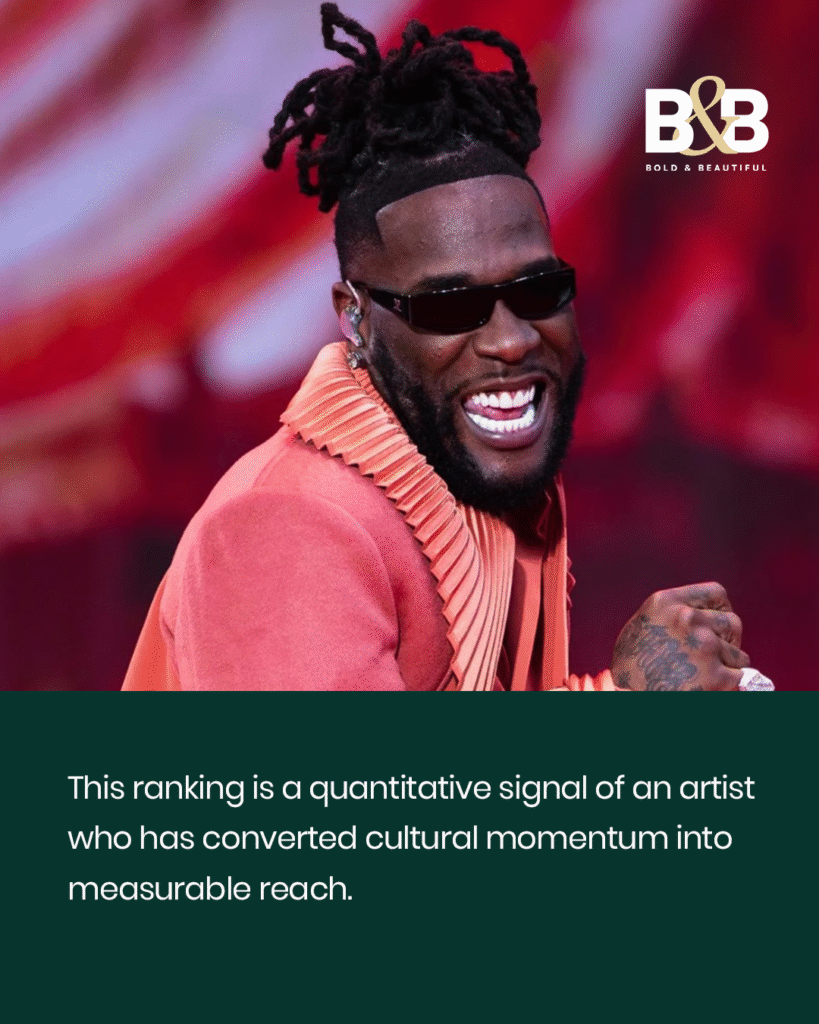
The timing of the accolade matters. Burna Boy released new music this year and has staged headline dates in major markets. Those commercial moves translated into playlist prominence and repeat listens, which streaming platforms reward algorithmically. In practice, high placement on Spotify feeds into higher visibility on other platforms and into more lucrative touring windows.
Spotify’s broader data also tells a larger story about Afrobeats as an export. The platform reports growing cross-regional streaming and increasing playlist adoption in Latin America, Europe and North America. For the genre, global listener patterns are shifting from niche curiosity to mainstream consumption, and leading artists capture the first wave of commercial upside.
For Burna Boy personally, the No. 1 ranking consolidates a career arc that moved from local acclaim to international headliner. His catalogue blends pop hooks with political and cultural dispatches that resonate beyond Nigeria. The result is a fanbase that both streams and turns up to shows, creating a double engine of revenue: digital and live.
The Spotify ranking also influences how the business treats Afrobeats. Labels, publishers and rights holders use platform data to make investment decisions. A top placement raises an artist’s negotiating leverage for sync deals, festival fees and brand partnerships. In practical terms, Burna Boy’s position will likely lift the market value of his recorded catalogue and his next touring cycle.
There is a ripple effect for the scene. When one artist reaches No. 1 on a platform as influential as Spotify, curators and editors pay attention to the roster behind him. Emerging acts on the same playlists see higher discovery rates, and that discovery can translate into playlist placement, radio rotation and international collaborations. The data becomes a pipeline for the next generation.
Critically, streaming numbers do not erase the structural work that underpins global success. Touring infrastructure, label investment, management strategy and marketing muscle all play a role. Burna Boy’s rise reflects creative momentum and a business apparatus that has learned to monetise it effectively. That combination is what turns platform visibility into sustained income.
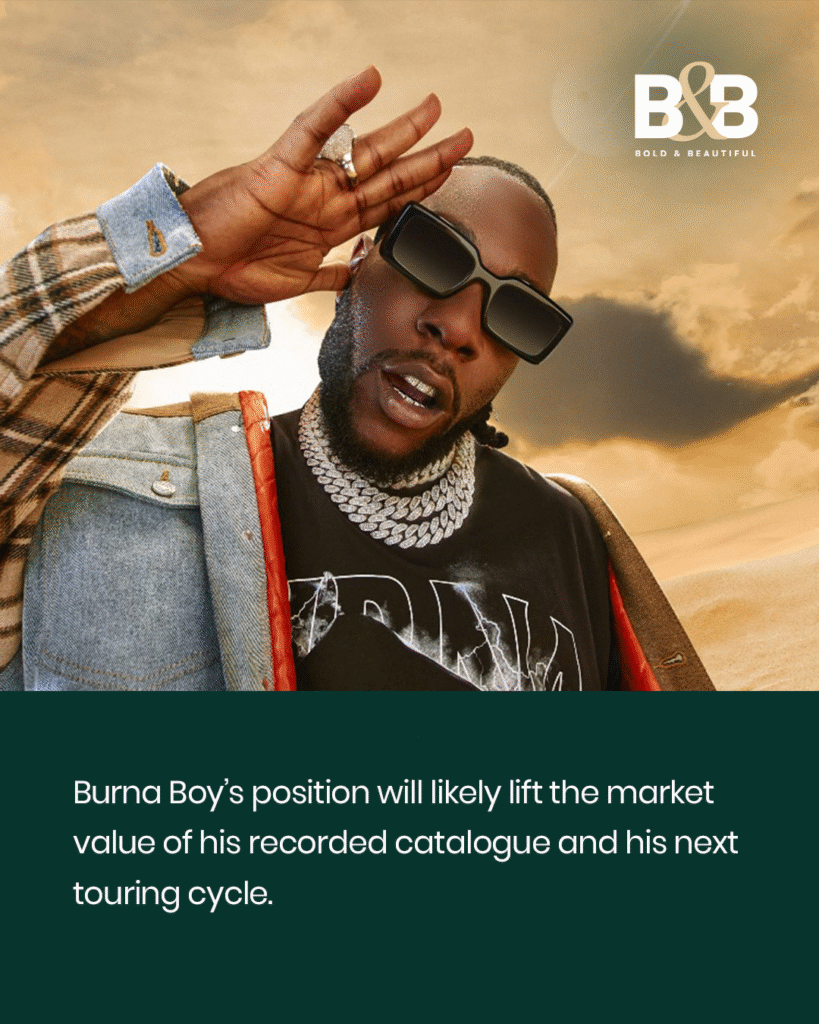
The ranking also reframes regional competition. Where once global attention was concentrated on a handful of cities, Spotify’s data shows listening pockets in unexpected markets. African artists who crack those markets gain a disproportionate advantage. For Burna Boy, that means his songs chart not only in Africa and Europe, but in places where Afrobeats previously registered only as a subcultural presence.
Longer term, the commercial logic is clear. Platforms reward repeat engagement. Artists who sustain high monthly listeners secure better placement, which in turn drives new listeners in a virtuous circle. Burna Boy’s No. 1 status is a snapshot inside that cycle. The challenge now is to keep converting streaming attention into durable assets: catalogue value, headline tours and brand equity.
For Nigerian music and for Afrobeats, the headline is validation. It signals to investors, festival directors and global audiences that the genre’s leaders occupy top-tier positions in the worldwide music economy. For Burna Boy, it cements a role he has already been playing: the artist whose reach helps define what Afrobeats means on the global stage.
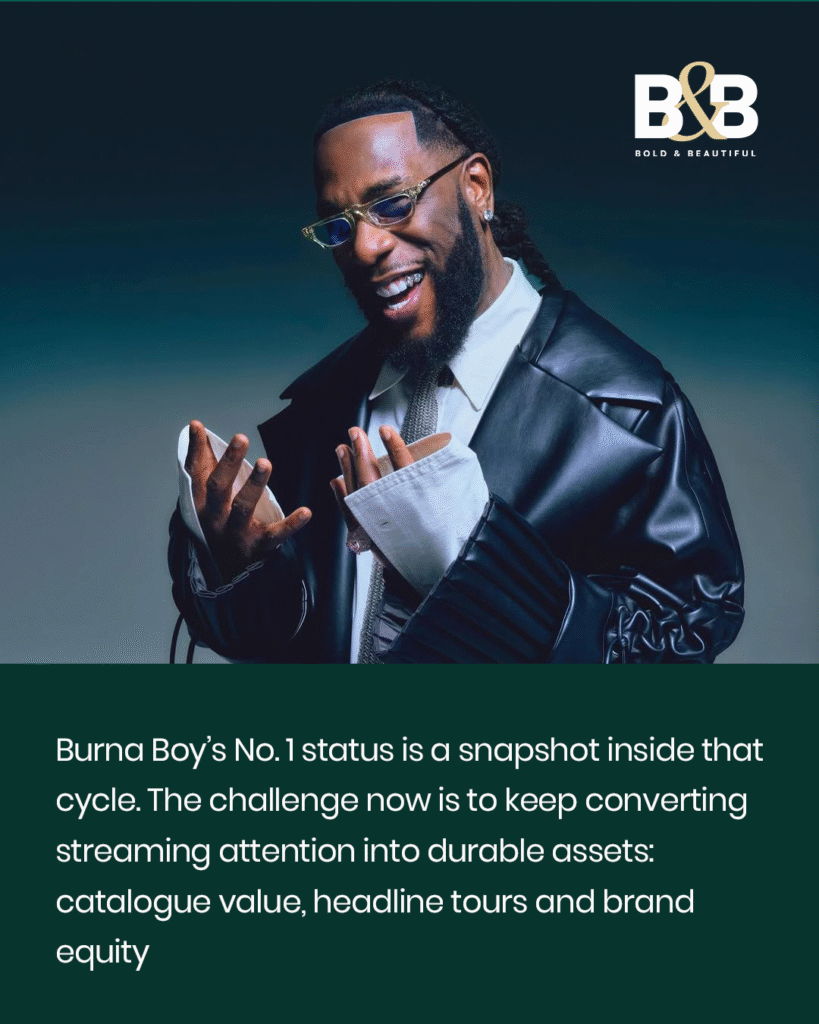
Expect immediate market consequences. Booking agents will reference the Spotify ranking when pricing shows. Brands will use it to justify partnerships. Playlists will refresh around established hits and new singles. In short, the No. 1 designation is a business lever as much as a cultural one, and Burna Boy now holds that lever in a year when Afrobeats continues to expand its global footprint.

